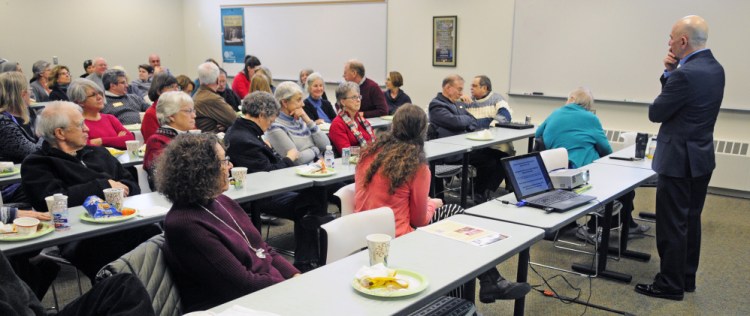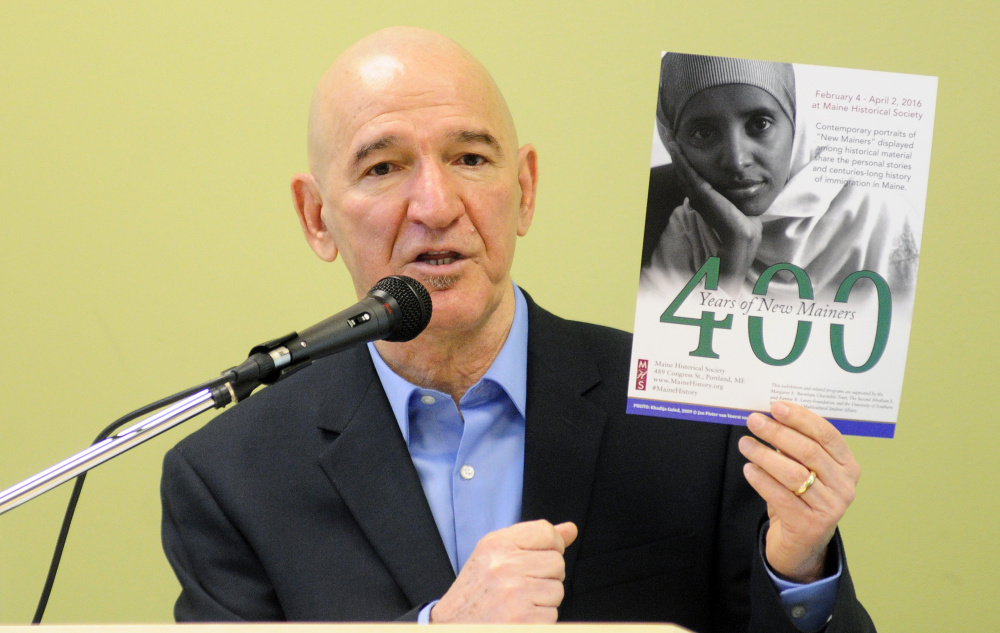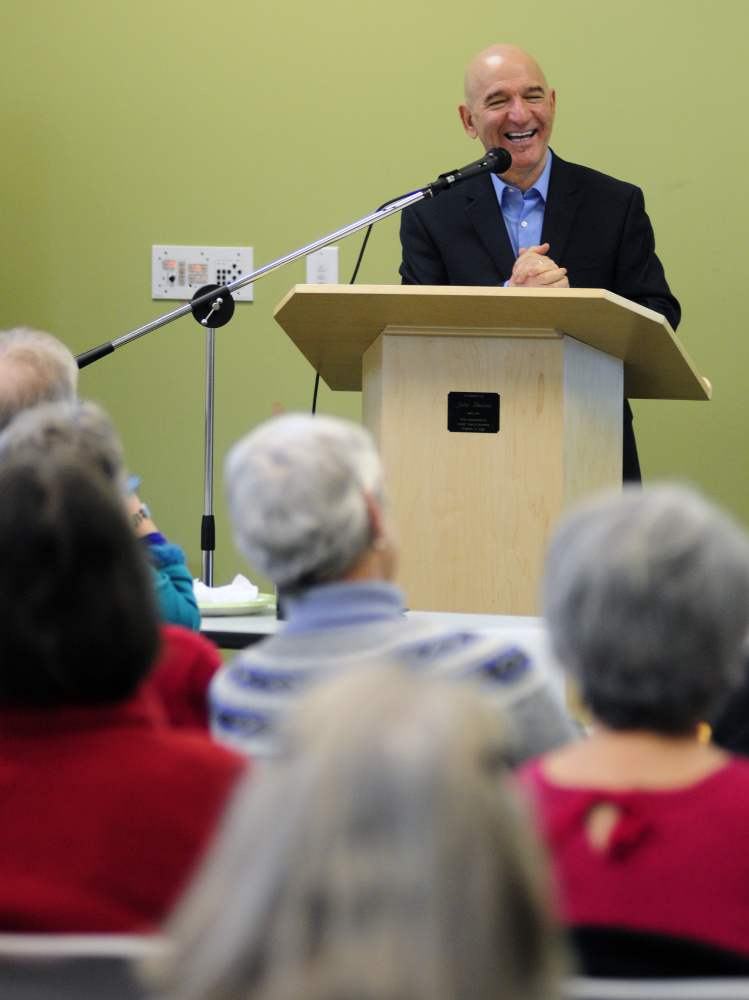AUGUSTA — Reza Jalali said he fell in love with photos of coastal Maine when he was being interviewed more than 30 years ago for entry into the U.S.. When he got here, he learned all the photos were taken during the summer.
Jalali shared his story and those of other immigrants during a lunchtime program Friday at the Holocaust and Human Rights Center of Maine on the University of Maine at Augusta campus.
The Iranian author, who is the coordinator of multicultural student affairs at the University of Southern Maine, spoke to more than 50 guests about new Mainers in connection with the “Yearning to Breathe Free: The Immigrant Experience in Maine” exhibit at the Michael Klahr Center, which runs through April 1.
“There is so much national and local attention on immigration, with name-calling and promises to build a wall,” Jalali said. “It must be an election season.”
The crowd chuckled at the remark, but Jalali said the treatment of immigrants, refugees and asylum-seekers is no laughing matter.
“The ugly assumption is that people are coming (to Maine) to stand in welfare lines,” Jalali said. “But they come for the same reasons people always have: safety, affordable living, natural beauty.”
Liz Helitzer, executive director of the human rights center, said telling the story of immigrants is important, especially because of all the rhetoric and hateful speech that seems to be so prevalent on TV and radio right now.
“There is a lot of really challenging rhetoric right now, and a fair amount seems to be targeted at new immigrants, which is shameful,” she said. “We are a country founded by immigrants, and the more that we can remind people that it’s a positive thing to keep growing and increasing our diversity, it helps us become more like what many other states look like.”
Jalali shared eight common myths about immigration with the group, including that immigrants don’t pay taxes and don’t want to learn English. He provided statistical information showing that immigrants pay nearly $100 billion in taxes while only using $5 billion worth of public services and that 83 percent of children with immigrant parents are proficient in English.
Helitzer and Jalali said there is a concern about preaching to the choir, since the people who attended the event already are educated on immigration issues and are sensitive to the struggles new Mainers have.
But Peter Beckerman, of Sidney, who attended the event with his wife, Joan, said Jalali taught them some things.
“We are members of the Jewish community in Waterville, so we are very, very sensitive to this,” said Peter Beckerman, a former municipal attorney. “But what (Jalali) was able to do is educate us on the responses to those myths, so now we can go out and be able to help educate people who have these prejudices.”
Jalali said as a nation founded by immigrants, America has a duty to support people who come to this country for a better life. The Beckermans planned to take Jalali up on his offer by visiting Mainly Groceries and buying something from owner Khalid Zumat, a leader in Augusta’s Iraqi community.
So many people make assumptions about immigrants, Jalali said, that he worries about a Muslim child at school or a woman wearing something that covers her face in Lewiston. He said immigrants represent a small percentage of the people who commit crimes in Maine.
“We must celebrate that,” Jalali said. “We need to re-humanize immigrants by telling their stories and offering a more accurate narrative.”
Another way to educate people who look negatively at immigrants is by providing historical context by telling people that their own great-grandparents and relatives experienced the same things when they came to America.
“Maybe they’ll reach a level of understanding that they shouldn’t do this if their own family members dealt with it too,” Jalali said. “Putting a human face and sharing stories about people contributing to our culture is important.”
Helitzer agreed that everyone needs to hear both sides of the immigrant debate.
“There are people who are on the fence and want to learn more about the topics,” she said. “They are hearing the hate rhetoric on the news, but they need to hear this rhetoric as well.”
Jason Pafundi — 621-5663
Twitter: @jasonpafundiKJ
Send questions/comments to the editors.






Success. Please wait for the page to reload. If the page does not reload within 5 seconds, please refresh the page.
Enter your email and password to access comments.
Hi, to comment on stories you must . This profile is in addition to your subscription and website login.
Already have a commenting profile? .
Invalid username/password.
Please check your email to confirm and complete your registration.
Only subscribers are eligible to post comments. Please subscribe or login first for digital access. Here’s why.
Use the form below to reset your password. When you've submitted your account email, we will send an email with a reset code.